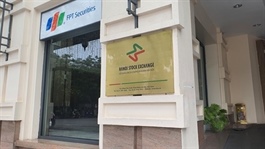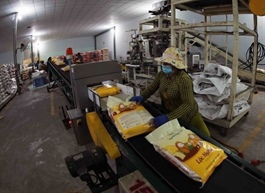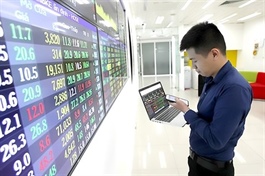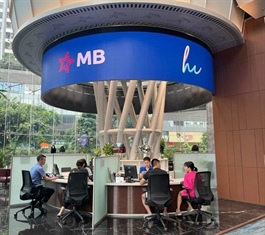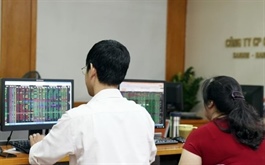SSC confident of achieving stock market goals by 2025
SSC confident of achieving stock market goals by 2025
The State Securities Commission of Vietnam (SSC) is confident of achieving the goal of upgrading the country's stock market status by 2025.

Last week, SSC published a draft circular focusing on solutions for foreign institutional investors to buy securities without 100 per cent pre-funding and facilitating equal access to information for foreign investors.
Listed organisations and large public companies are expected to publish periodic information in English from January 1, 2025, and continue to expand the disclosure of extraordinary information one year later. Information on foreign ownership will also be publicly disclosed on the SSC website in both English and Vietnamese.
“To date, we have received positive feedback from investors investing in Vietnam and major international investors. The main contents have received consensus. Additional discussions mainly related to technical issues, and the relationship between investors, securities companies, and custodian banks. The parties are also analysing these issues,” said Bui Hoang Hai, deputy chairman of the SSC.
The Ministry of Planning and Investment and the State Bank of Vietnam are implementing solutions to remove administrative procedures in opening accounts for foreign investors.
Over the past 24 years, the stock market has created significant value for Vietnam's economy, such as strongly supporting the equitisation process and improving the efficiency of state-owned enterprises. From the initial two stocks, there are now 1,800 listed and registered stocks on the market.
“Although the development time is only one-fourth of the period of surrounding markets like the Philippines and Thailand, the market capitalization of the Vietnamese stock market currently accounts for nearly 70 per cent of GDP, equivalent to $300 billion, ranking 30-35th in the world market,” Hai said.
“In terms of liquidity, with a trading value of nearly $1 billion, not including the government bond and corporate bond markets, it can be confidently said that the Vietnamese stock market is one of the most vibrant markets in Southeast Asia,” he added.
Half of the approximately 1,800 listed organisations today are state-origin enterprises, with many expanding their production and business activities compared to before listing.
In addition, private corporations listed on the stock market have also developed thanks to the market. If relying solely on initial contributed capital and bank loans, Vietnam would not have large economic groups ranking among the top 500 in Southeast Asia as it does today.
More significantly, according to Hai, the stock market can spread the spirit of fair and transparent business. With encouragement from government policies, this market is also having a significant impact on business activities towards increased social responsibility through the implementation of environmental, social, and governance standards, contributing to the sustainable growth of the economy.
Regarding the goals set for the stock market by 2025, Hai said, “Some criteria are already nearly achieved, such as the market capitalization ratio to GDP and the total number of investors as a percentage of the total population. Although the market capitalization ratio to GDP has decreased compared to the 2020-2021 period, the absolute market capitalization figure has still increased significantly.”
“When setting out the goals in the strategy, we were quite ambitious. The Vietnamese stock market has a lot of potential for development, but the goals will be difficult to achieve without the efforts of all market participants,” he said.






